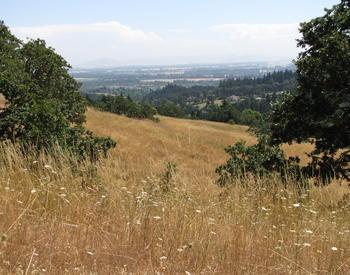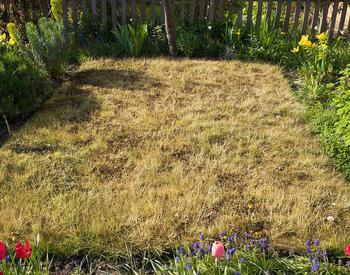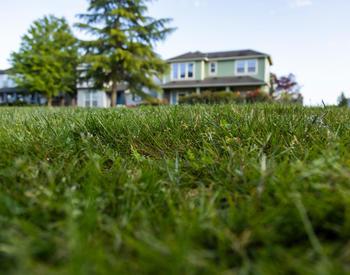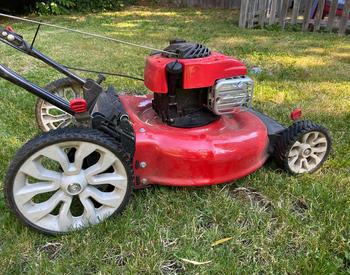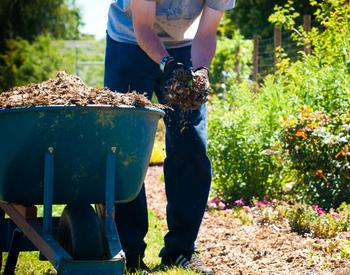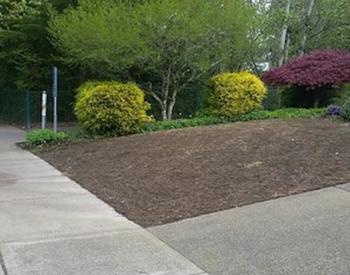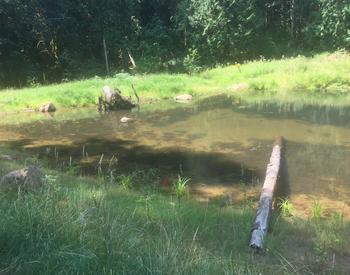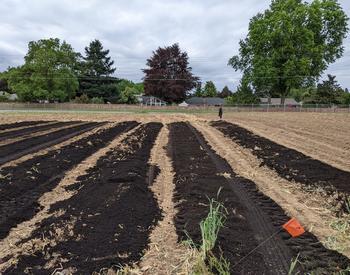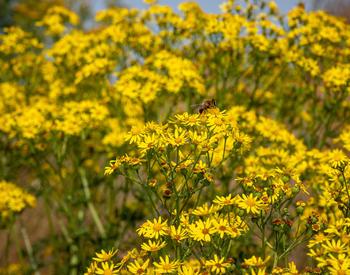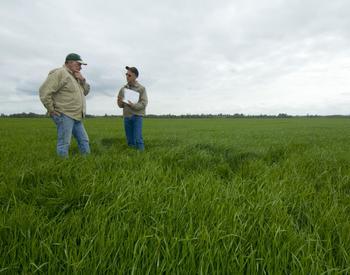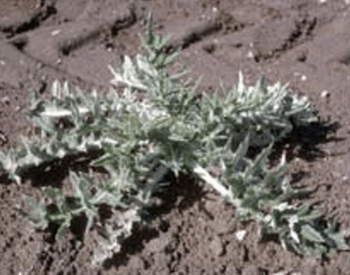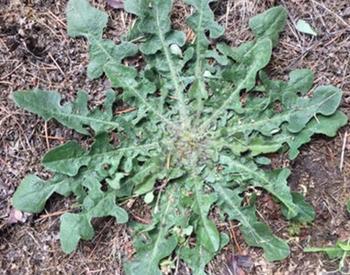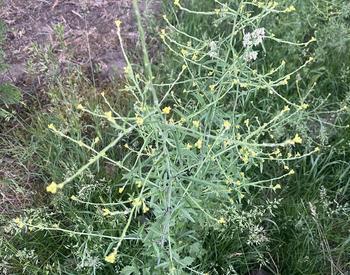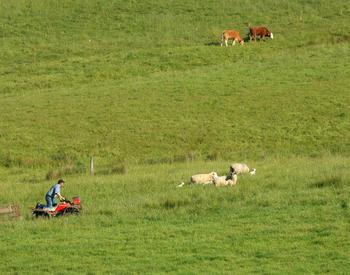In the past five years, I’ve used a few different herbicides maybe twice a year in or around my lawn to kill weeds. I haven’t used anything in at least six months. I’m composting on site and wondering how concerned I should be about adding the grass clippings.
Is there a weed killer that I could use to kill dandelions in my grass that would still make the clippings safe to compost? I’ve been looking into a vinegar/dish soap mix, is that safe to compost for a food garden?
The standard recommendation for lawn care is to remove one-third of the leaf blade with each mowing. That leaves plenty of the leaf to photosynthesize and support the roots. Grass plants managed in this way are strong competitors with weeds for mineral and water resources.
If you apply a standard weed and feed and remove one-third of the leaf blade with each mowing, you should be safe to compost grass clippings from the fourth cutting after the application.
Herbicidal vinegars are 20% solutions of acetic acid. That means 20% vinegar, 80% water. Acetic acid of any concentration is considered a weak acid in chemistry speak, but herbicidal vinegars are strong enough to cause skin irritation and medical attention should be sought if it gets in the eye. By comparison, white vinegar used for cooking is 5% and cleaning vinegar is 6%.
Herbicidal vinegars are not selective, so care must be taken to avoid overspray to desirable plants including grass plants. Also, the soap-vinegar combo can harm desirable plants when temperatures rise or if applied under full sunlight conditions.
It would be safe to compost plant materials that have been exposed to herbicidal vinegars. Organic acids are a natural by-product of the composting process, although composting microorganisms will have further broken down these acids in mature composts.
Use pesticides safely!
- Wear protective clothing and safety devices as recommended on the label. Bathe or shower after each use.
- Read the pesticide label—even if you’ve used the pesticide before. Follow closely the instructions on the label (and any other directions you have).
- Be cautious when you apply pesticides. Know your legal responsibility as a pesticide applicator. You may be liable for injury or damage resulting from pesticide use.


